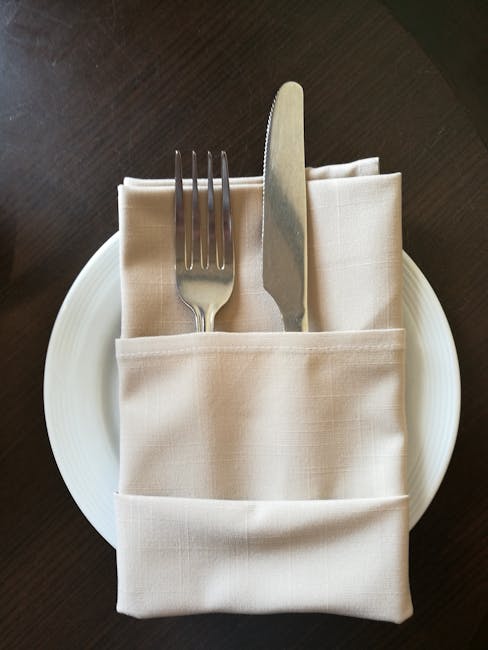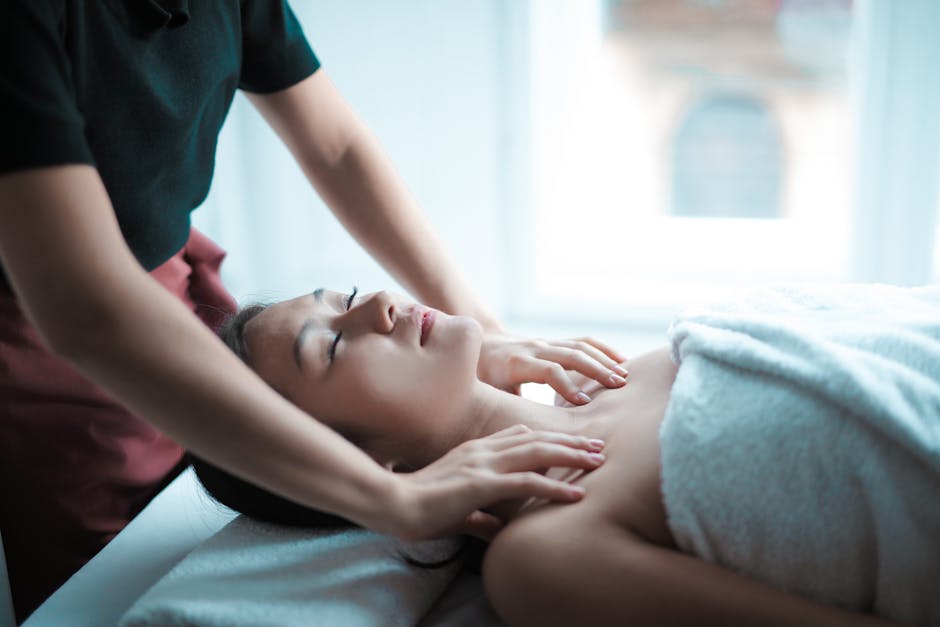Tipping in Thailand: A Traveler's Guide to Navigating Thai Gratuity Like a Pro

Tipping in Thailand: A Traveler's Guide to Navigating Thai Gratuity Like a Pro
Okay, friend, let's talk Thailand! Specifically, let's dive into something that can be a little confusing for us Westerners: tipping. When I first visited Thailand, I was so worried about accidentally being rude or overspending because I wasn't sure about the tipping norms. It's different than back home, right? Don't worry, I've been there, done that, and I'm here to share everything I've learned so you can navigate tipping in Thailand like a seasoned traveler. No more awkward fumbling for change or second-guessing yourself!
Is Tipping Expected in Thailand? A General Overview

Here's the thing: unlike some Western countries where tipping is practically mandatory, tipping in Thailand isn't automatically expected. It's not ingrained in the culture the same way it is in, say, the United States. The minimum wage in Thailand is different, and service staff aren't as reliant on tips to make a living wage. That being said, a little extra appreciation for good service is always appreciated! Think of it as a genuine gesture of gratitude, rather than an obligation.
Generally, Thai people don't usually tip each other, especially in everyday situations. However, with the rise of tourism, tipping has become more common, especially in tourist hotspots like Bangkok, Phuket, and Chiang Mai. So, while not an absolute must, a small tip for exceptional service is always welcomed and shows that you appreciate their hard work.
Restaurants: When and How Much to Tip

Let's start with restaurants. This is probably where most of us encounter the tipping dilemma. Here's what I've found to be the best approach:
When to Tip:
- Check the Bill: The first thing to do is carefully examine your bill. Some higher-end restaurants, especially those catering to tourists, might automatically include a service charge, typically around 10%. If a service charge is already included, you don't necessarily need to add an additional tip.
- Exceptional Service: If the service was outstanding – the waiter was incredibly attentive, helpful with recommendations, and went above and beyond to make your dining experience memorable – then a tip is definitely warranted.
- Avoiding Confusion: Even if service is standard, I sometimes leave a small tip to avoid any confusion, especially in tourist-heavy areas where tipping is becoming more commonplace.
How Much to Tip:
If you decide to tip, here's a general guideline:
- No Service Charge: If there's no service charge on the bill, rounding up to the nearest 20 or 50 baht (depending on the total bill) is a good rule of thumb. For a larger bill (say, over 1000 baht), you might consider tipping 5-10% for exceptional service.
- Small Meals: For smaller meals at street food stalls or casual eateries, tipping isn't expected. However, if you particularly enjoyed the food or service, leaving a few extra coins is a nice gesture.
My Personal Experience: I remember once dining at a lovely family-run restaurant in Chiang Mai. The owner, a sweet elderly woman, went out of her way to explain all the dishes and even gave us extra portions to try. The food was delicious, and her hospitality was incredible. I made sure to leave a generous tip to show my appreciation. Her smile was worth more than the money!
Massage and Spa Services: Relax and Reward

Ah, massages in Thailand! They are amazing, aren't they? So relaxing and often incredibly affordable. But what about tipping etiquette at spas and massage parlors?
Expectations and Amounts:
Tipping massage therapists and spa staff is generally expected, especially in tourist areas. These workers often rely on tips to supplement their income.
Here's a breakdown of what I usually do:
- Standard Massage: For a standard Thai massage or oil massage, I usually tip around 50-100 baht per hour.
- Luxury Spas: At more upscale spas, where the service is more personalized and the environment is more luxurious, I might tip 10-15% of the total bill.
- Exceptional Service: If the therapist was particularly skilled or attentive to your needs, consider tipping a bit more. If you have an injury they catered to, or they gave you extra time on a sore spot – tip them extra!
Handing Over the Tip: I usually hand the tip directly to the therapist after the massage. A simple "thank you" (khop khun krap/ka) goes a long way!
Taxi and Tuk-Tuk Drivers: Negotiating and Tipping

Navigating Thailand's transportation system can be an adventure in itself. Taxis and tuk-tuks are common modes of transport, but tipping etiquette can be a bit different.
Taxis:
For taxis, tipping isn't generally expected, but it's a nice gesture if:
- They Use the Meter: If the driver uses the meter (which they should!), simply rounding up the fare to the nearest 5 or 10 baht is sufficient.
- They Help with Luggage: If they assist you with your luggage, a small tip of 20-50 baht is appropriate.
- They Provide Excellent Service: If the driver goes out of their way to be helpful, like providing directions or recommending a good restaurant, consider leaving a small tip.
Tuk-Tuks:
With tuk-tuks, it's a little different. You typically negotiate the fare before you start the journey. Therefore, tipping isn't expected. However, if the driver provides a particularly enjoyable or informative ride, rounding up slightly or offering a small extra amount is a nice gesture.
Important Note: Always agree on the fare before getting into a tuk-tuk or taxi. This avoids any potential misunderstandings or inflated prices later on. I learned that lesson the hard way during my first trip!
Hotel Staff: Showing Appreciation for Hospitality

Hotel staff work hard to make your stay comfortable and enjoyable. Here's a rundown of tipping etiquette in Thai hotels:
Bellhops: Tipping bellhops who assist with your luggage is customary. I usually tip around 20-50 baht per bag, depending on the size and weight.
Housekeeping: Tipping housekeeping staff is a thoughtful gesture. Leaving 20-50 baht per day on your pillow or on the desk is a common practice. I find that leaving a small tip each day ensures that whoever cleans your room that day receives the tip.
Concierge: If the concierge provides exceptional service, such as booking tours, making restaurant reservations, or providing helpful advice, a tip of 50-100 baht is appropriate. However, don't feel pressured to tip for basic services like providing directions.
Room Service: Check your room service bill carefully. Some hotels automatically add a service charge. If not, tipping 10% of the bill is customary.
Tour Guides and Drivers: Rewarding a Memorable Experience

If you take a guided tour in Thailand, tipping your tour guide and driver is a standard practice, especially if they provide excellent service.
Tour Guides: For a full-day tour, I usually tip the tour guide around 100-300 baht per person, depending on the size of the group and the quality of the tour. If the guide was knowledgeable, engaging, and went above and beyond to make the tour memorable, consider tipping more.
Drivers: For drivers, a tip of 50-100 baht per person for a full-day tour is customary. If the driver was safe, courteous, and helpful, a little extra is always appreciated.
Group Tours: If you're on a larger group tour, the tipping amounts might be slightly lower, but still appropriate. Check with the tour operator or your fellow travelers for suggestions.
Street Performers and Musicians: Supporting Local Talent

Thailand is filled with talented street performers and musicians, especially in tourist areas. While tipping isn't mandatory, it's a nice way to show your appreciation for their artistry.
If you enjoy their performance, dropping a few coins (5-20 baht) into their collection container is a kind gesture. Remember, these performers are often trying to make a living through their art, so any contribution is appreciated.
A Few Extra Tips (Pun Intended!) for Smooth Tipping

Okay, let's wrap things up with a few final thoughts on tipping in Thailand:
- Carry Small Denominations: Having small baht notes (20, 50, and 100 baht) readily available makes tipping much easier.
- Tip Directly: Whenever possible, hand the tip directly to the person you're tipping. This ensures that they receive the full amount.
- Be Discreet: While tipping is appreciated, avoid making a big show of it. A simple, genuine thank you is all that's needed.
- Don't Feel Pressured: Tipping is a gesture of appreciation, not an obligation. If you're on a tight budget, don't feel pressured to tip excessively.
- Observe Locals: If you're unsure about tipping etiquette in a particular situation, take a moment to observe what the locals are doing. This can give you a good indication of the norms.
Respect and Kindness: More than the amount you tip, remember that a genuine smile and a polite "thank you" (khop khun krap/ka) go a long way in Thai culture. Showing respect and kindness is always appreciated.
Embrace the Culture of Giving

At the end of the day, tipping in Thailand is about showing your appreciation for good service and contributing to the local economy. By following these guidelines and using your best judgment, you can navigate Thai tipping etiquette with confidence and avoid any potential awkwardness.
Remember, a little bit of kindness can go a long way in making your trip to Thailand even more memorable. So, go out there, explore the beautiful country, enjoy the delicious food, and don't be afraid to show your appreciation to those who make your experience special! Safe travels!
Post a Comment